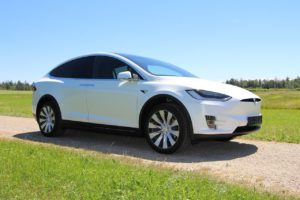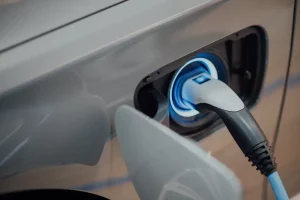What All The Hype Is About
In the next two decades, our highways will be full of electric vehicles (EVs), whether you like them or not.
These vehicles have made significant technological strides quickly and, thanks mainly to Tesla’s progress, are the new automotive standards.
Electric cars are the future; that’s the fact. Many car owners are still hesitant to switch from gas-powered cars, mainly due to misunderstandings about EVs being unsuitable for everyday driving.
There are a few solid reasons you shouldn’t buy an electric car; the benefits of having one far exceed the disadvantages.
Table of Content
EVs Are Better For The Climate
Renewable Energy To Power EVs
Electric Cheaper Than Gasoline
EV Maintenance Costs
Electric Car Noise
EV Government Incentives
Electric Cars Performance
EVs Are More Expensive Than Gas Cars
Not Enough Charging Stations
Range Anxiety
Value Depreciation
Electric car (long) charging time
Lack of Choices
Conclusion

The Pros And Cons Of Electric Cars
I’m going to present the most significant benefits and downsides of EVs. Keep in mind that even though the electric motor was invented in 1834 by Thomas Davenport, it was just recently that carmakers started taking them seriously.
In other words, modern EV technology is relatively new and evolving rapidly.
Reasons to buy an electric car.
There are many obvious advantages to buying an electric car. Also, some are less obvious; I will try to elaborate on both.
EVs Are Better For The Climate

The reality that electric cars are more beneficial for the environment than gas-powered cars is why more people switch to one. Electric vehicles do not need a tailpipe, as they don’t produce exhaust.
Because EVs don’t burn fossil fuels, they do not produce carbon dioxide; they generate zero emissions.
They also reduce air pollution considerably because no greenhouse gasses go into the atmosphere like a gas-powered or diesel engine.
Some experts claim that electric cars are not that “clean.”
Extracting raw materials, like cobalt, lithium, and rare earth elements, for manufacturing lithium-ion batteries creates air pollution. Cobalt has been especially problematic.

Mining can produce slag, which can get into the environment. Also, smelting and extracting metals from the ore can emit sulfur oxide and other harmful gases.
However, research shows that they are cleaner than internal combustion vehicles over their lifetime, with essentially zero emissions generated.
The improvement of manufacturing processes and battery recycling will only get cleaner.
Renewable Energy To Power EVs
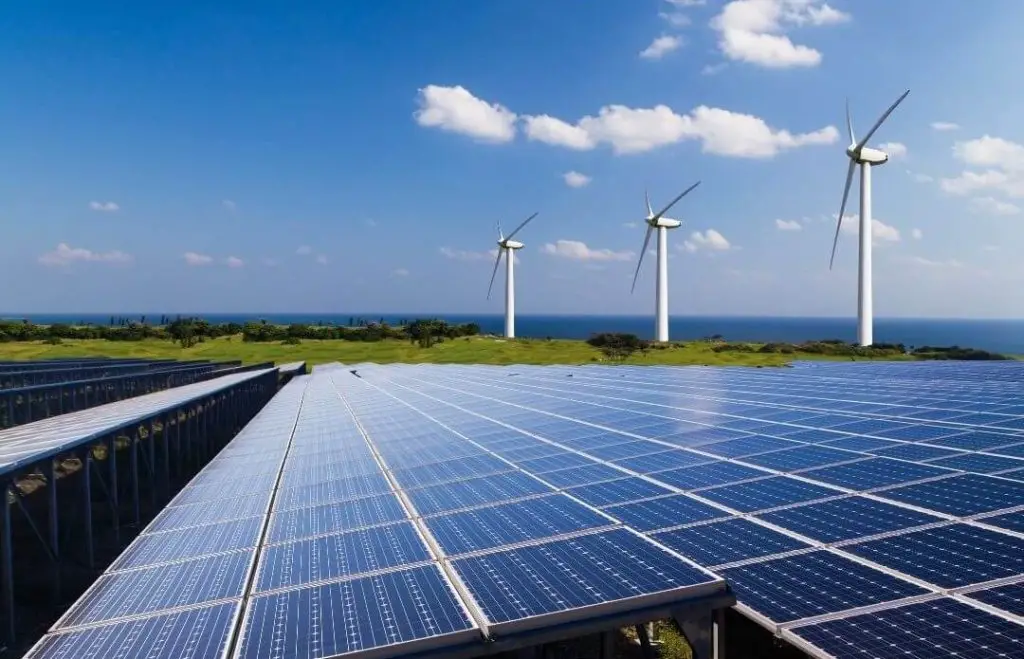
It’s not true that they mostly run on coal-generated electricity.
Electric-powered cars can be powered naturally with renewable electricity produced by wind, solar, and water.
Unlike gasoline and diesel vehicles, which depend on sources created from oil, non-renewable resources.
Statistics show that 28–50% of electric car owners in the US and Europe have solar-powered homes. It would help if you also considered installing solar panels to power your electric vehicle to reduce energy costs.
Electric Cheaper Than Gasoline

The very obvious is that electricity is much cheaper than gas, around one-third.
Another less apparent reason electricity is more reasonable is that prices are more stable than oil prices, constantly fluctuating.
Because of that, many EV owners are taking advantage of charging their cars at home at night when their local electric company is charging the least amount.
It is very convenient, and the cheapest, and your EV is full and ready to go every morning.
Using widely spread public charging stations is more affordable than filling up on regular internal combustion cars.
Another advantage of electric vehicles is their regenerative braking system. It retrieves some energy and puts it back in the battery pack at no cost. That’s what we all like the most, LOL.
EV Maintenance Costs

Electric cars have much more simplistic designs than vehicles with internal combustion engines.
Since they don’t have a complicated gasoline engine with many moving parts, you won’t have to worry about typical maintenance.
Performing routine visits to your local mechanic for oil changes every few thousand miles, replacing spark plugs, oil filters, pumps, valves, etc.
None of it; your EV doesn’t need all that crap.
Brake pads and rotors also don’t need replacement as often as ICE vehicles because of their advanced braking system, which uses electric motors. As a result, slowing down EVs can happen without even touching the brake pedal. Also known as “one-pedal driving.”
The primary attention of maintaining an EV is assuring the battery operates at full capacity.
Electric Car Noise

Electric cars are quieter than diesel and petrol, with their internal combustion engines.
The only sounds electric vehicles tend to make are the noise generated by their tires or wind resistance, which only happens at higher speeds.
Get $300 OFF the HomePower ONE Power Station! For a limited time only, get it for $999!EVs are extremely quiet when driving. Many governments worldwide have suggested that manufacturers implement them with the device to emit alert sounds while moving.
It is at speeds less than 18.6 mph (30 km/h) in the US as a final ruling by NHTSA from February 2018.
Side note, I currently own a 2021 Honda Insight Hybrid, which also makes a fascinating and unique humming noise while in fully electric mode.
My wife calls my car an “ice cream truck,” she thinks it is so funny, LOL.
EV Government Incentives

The most significant advantage of buying an EV is the variety of incentives.
Governments have various policies, so the incentive depends on where you live and the specific model you’re looking to buy.
The most rebate available for buying EVs in the US is up to $7500.
For instance, the governmental EV tax credit terminates for a manufacturer’s vehicles in the United States once the company sells 200,000 or more qualifying vehicles.
For example, an incentive for Tesla cars is no longer available because the automaker has exceeded its sales quota.
Electric Cars Performance

An essential but often overlooked benefit of electric vehicles is their driving dynamics. Thanks to the instant torque electric motors produce, their acceleration is instantaneous and much smoother than gas-powered vehicles.
EVs also manage to have their battery packs stored in the middle of their chassis, keeping the center of gravity low on the road, and improving ride quality, handling, and performance.
“One-pedal driving” – is another innovative feature – in hybrids and fully electric cars. It is a clever system that uses regenerative brakes to decrease vehicle speed and recharges batteries.
All that happens very smoothly when you let off the accelerator. In many cases, there is no need to use the brake pedal while getting to a red light or a stop sign, for example – with one-pedal driving.
Many modern EVs are also equipped with independent electric motors on each axle, creating AWD vehicles that contribute tremendously to their performance.
Reasons not to buy an electric car.
As advantageous as they are, electric cars are not ideal. There are certain disadvantages to having one, though these odds will likely disappear in the next ten years as EV technology and infrastructure continue developing.
EVs Are More Expensive Than Gas Cars

EVs are cheaper to own but more expensive to purchase than gas-powered vehicles.
It averages about $10,000 between EVs and comparable vehicles with internal combustion engines.
As I mentioned, many governments offer discounts and tax credits to encourage people to buy them. Their steep initial price still makes them unattainable for the ordinary car buyer.
Luckily, this price gap has been tied thanks to improvements in battery technology. They are just getting cheaper as more people buy electric vehicles.
Not Enough Charging Stations
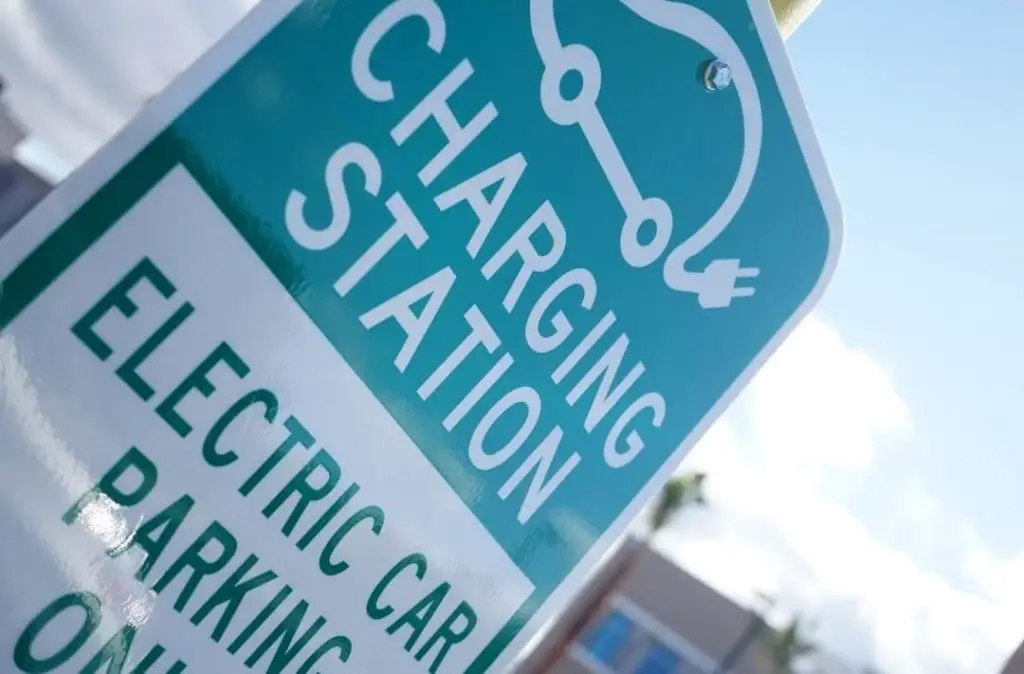
The shortage of charging infrastructure used to be a significant problem just a few years ago.
Still, thanks to the efforts of many companies like Electrify America, EV infrastructure is expanding rapidly.
Today locating a station to charge your EV in and around city centers is no longer a hassle.
Then again, that’s not a problem if you can charge your EV at home overnight.
However, long road trips can prove challenging, primarily if you’re traveling in secluded areas where public chargers are hard to find. Or they are not there in general.
However, suppose you live in an area with a significant lack of charging stations. In that case, the best option for you might be getting a plug-in hybrid rather than an EV.
Range Anxiety
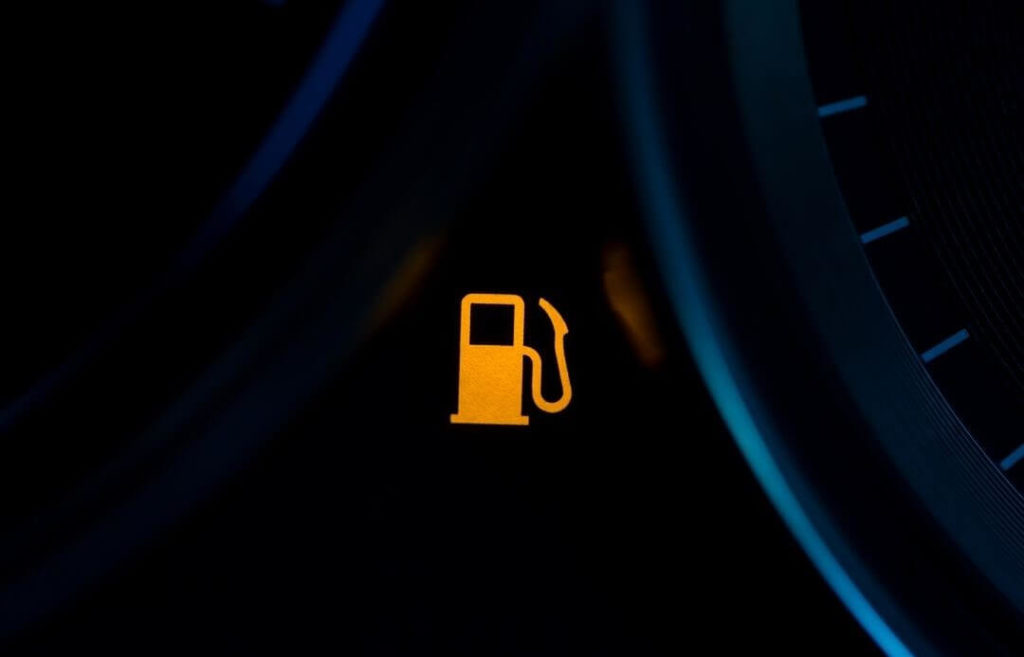
For today’s most common electric vehicles on the road, a driving range of 200-500+ miles (322-804+ km) is standard.
Also, having access to growing public charging stations, range concern is no longer a problem for the average everyday user.
However, the downside is that their range can fluctuate drastically depending on weather conditions and car driving.
Meaning the EV range is susceptible to aggressive driving. Drivers with a “heavy foot” will get less range in an EV than gas-powered cars.
Also, weather condition affects the range as well.
Save big on RG1000S Portable Jump Starter this season (while supplies last)The latest study by AAA shows that the EV range can drop up to 41% based on the hot or cold temperatures and the use of a heater or A/C.
They compared optimal ranges between 75 degrees Fahrenheit and 20 degrees Fahrenheit and 95 degrees.
At 20 degrees, the average driving range dropped by 12% when the car’s cabin heater was not used. While the heater was turned on, the range decreased by 41%.
At 95 degrees, the range dropped 4% without air conditioning and fell by 17% with the A/C on, the study found.
Also, towing with an EV or using it for another intensive application will drastically reduce its range. In that case, you can expect the towing capacity to be 30-50% less than the range in normal driving conditions.
Value Depreciation

There are a few reasons for higher value depreciation for EVs.
- All that “new, unproven technology” gets daunting once the car is post-warranty.
- It underestimates how much it costs to maintain an EV, which is technically lower than a gasoline-powered vehicle, especially for Tesla cars.
- Not fully understanding EV technology.
- The initial purchase cost is higher than the gas-power vehicle
A recent analysis found that new sedan depreciates 39% after three years while trucks do a little better at 34%.
However, electric cars dropped an astonishing 52%, making their owners lose much of their investment.
Not all electric depreciate much because not all EVs are the same or cost the same.
Below you’ll find the list from carwow of the top five EVs that hold their value, with the percentage value lost after three years or 36,000 miles.
| Top Five EVs That Hold Their Value |
|---|
| Porsche Taycan (37.10%) |
| Tesla Model 3 (40.40%) |
| Tesla Model X (41.30%) |
| Polestar 2 (41.80%) |
| Tesla Model S (43.00%) |
| Top Five EVs Depreciating The Quickest. |
|---|
| Smart Fortwo Coupe (58.30%) |
| MG MG5 (59.10%) |
| Nissan E-NV200 (60.20%) |
| Fiat 500 (62.20%) |
| Smart Fortwo Cabrio (63.80%) |
Electric car (long) charging time

We all know that charging EVs take longer than fueling gas or diesel at a gas station. Filling up a gas tank in as little as 3-5 minutes while fully charging an EV can take between 30 and 12 hours.
Some EVs charge faster than others.
There are multiple reasons why charging EVs takes longer :
- Power source – 240V and 40 amps Level 2 charger minimum, 120V standard house outlet would take days. A DC charger is ideal for charging EVs to full capacity, like a Tesla V3 supercharger (250kW) and the most powerful Electrify America (350kW) chargers.
- Charger capacity – modern electric cars’ typical onboard chargers are at least 6.0 kilowatts. The latest Tesla 3 Performance has almost twice bigger chargers, around 11.5 kW, which can take full power of a 240-volt, 50-amp circuit to recharge its 80.5 kWh battery.
- Is the battery empty or full? – it is way quicker to “top up” the battery instead to lengthen the amount of time driving on a single charge
- Weather conditions – Colder temperatures can affect vehicle efficiency, lengthen charging times, and exceptionally rapid chargers.
Luckily, charge times are shrinking across the board. Thanks to advancements in car battery technology, electric infrastructure with many new models takes less than a few hours to charge in full.
The ideal option is to have at least a Level 2 (250kW) charger at home – plug in for the night – and your EV is full and ready to go in the morning.
Exactly like your iPhone – charging overnight. LOL
Lack of Choices

Are you thinking about buying a gas-powered car? No problem – there are many makes and models on the market, body styles, transmissions, engines, and so on.
Sky, it’s a limit and funds sometimes, LOL.
Now, let’s try that with EV selection – I would say – it’s a slim picking, LOL.
The overwhelming difference in selection between gas-powered cars and EVs is understandable.
After over 100 years of manufacturing gas and diesel-powered cars, EVs only started mass-producing in the 2010s.
With less history, there are far fewer electric models than gas-powered options.
However, that is changing quickly, with more manufacturers hitting the market yearly with their new EV models.
Also, many automakers are planning to make only EVs after 2035. Soon enough, we all will be overwhelmed and spoiled with all the electric vehicles to choose from.
Electric Cars FAQs
Common questions about EVs
Hopefully, the following list of frequently asked questions and answers gave you initial knowledge about the pros and cons of electric vehicles.
When Will Electric Cars Take Over?
When will all cars be electric? That's a good question. Short and simple - sooner than most people think. More automakers are committing to stop the production of diesel and gas-powered cars by 2035. Many local and worldwide governments have proposed banning new gasoline and diesel vehicles from 2035.
As the EV segment grows, IHS Markit predicts that about 32% of new cars sold in the US will be electric by 2030. New York Times is projecting that around 60% of US vehicles on the roads by 2050 will be electric.
All those predictions from many different sources prove one thing.
EVs are getting extremely popular, cheaper, and better overall, but don’t expect internal combustion engine vehicles to disappear instantly.
Gas-powered vehicles will continue to be a common sight on our roads for another two or three decades.
We see that it will take a while for existing models to reach the end of their life spans.

Is It Worth Getting An Electric Car in 2021 And Beyond?
The answer is yes. EVs have many benefits over gas-powered cars. In the long period, you save money.
Meanwhile, when buying an electric vehicle, there is a high up-front price. Still, your electric vehicle ends up costing less over a lifetime.
What’s more, electric cars don’t cost a lot to run. They are quieter, perform better, and significantly save fuel costs and maintenance.
Additionally, they are available with government incentives that decrease their purchase value.
Bad Things About Electric Cars
In general, there is nothing wrong with electric cars. However, remember that their battery range suffers significantly in extremely cold or hot weather conditions.
Also, intensive “flooring” or towing will decrease the range of the battery. In that case, you should expect more often “fueling,” which takes a little bit longer than in a traditional internal combustion engine car.
Conclusion

So, there you have it.
13 Pros And Cons Of Electric Cars.
If you can live with all those pros and cons of electric cars, you should get one or at least have thought about it.
There are a few compelling reasons why you shouldn’t buy an electric car. EV tech is advancing so fast that the disadvantages will soon become insignificant, making EVs a future way of transportation.
Range anxiety, slow charging times, and trouble finding a charging station are quickly becoming issues of the past.
At the same time, EV prices continue to drop as manufacturers ramp up production, expanding to new EV models and making batteries cheaper and more efficient.
With all that being said, there is a possibility that your new car will be fully electric or a hybrid, assuming you don’t already drive one.
If you do, feel free to drop the name and model of your car in the comment section and your experience with it.
Thanks for stopping by spotforcars.


